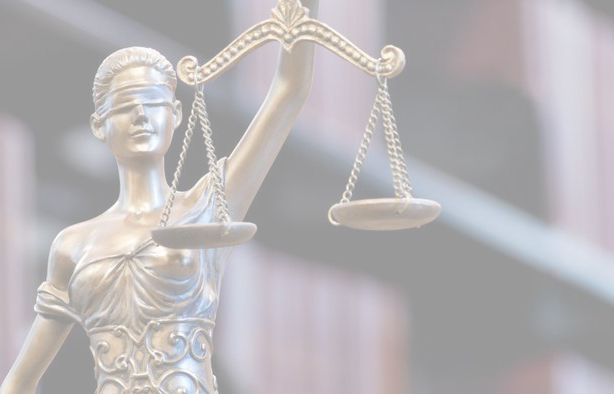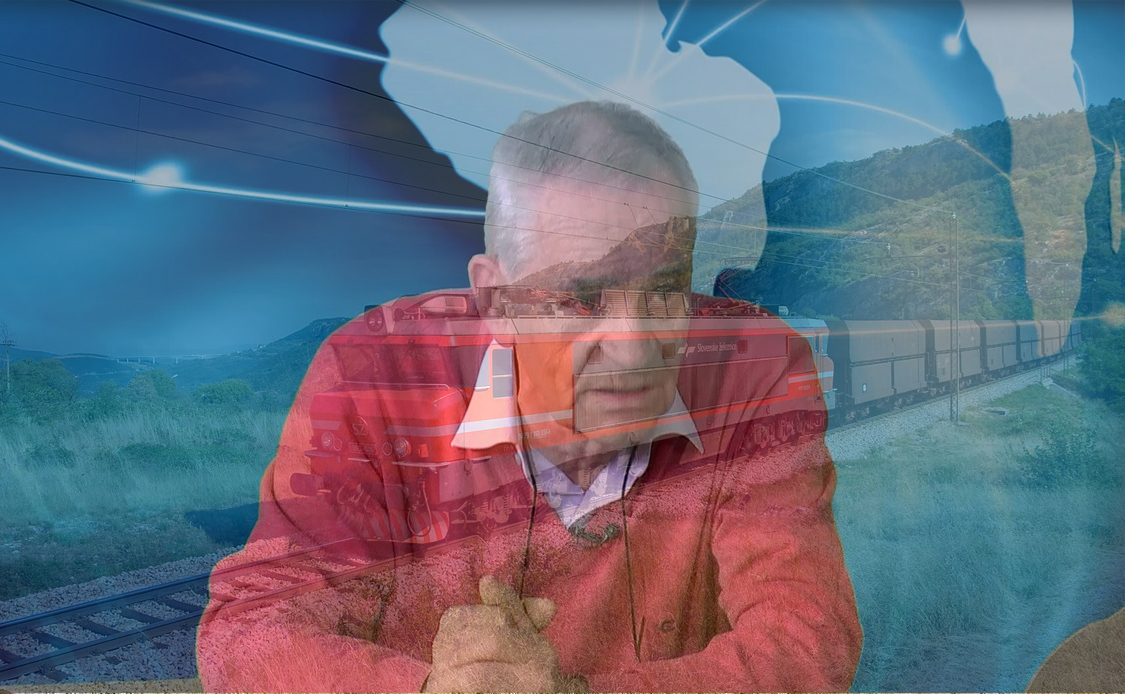Zakaj slovenska sodišča v volilnih sporih ne sodijo !?


Situacija v kateri smo zahteva intenzivne akrivnosti v več smereh.
Pošiljam protestno pismo na SVET Evrope, Beneško komisijo in GRECO s protestnim sporočilom in vprašanjem zakaj sodišča v Sloveniji o volilnih sporih ne sodijo, prispevek od OLIGARHIJE DO DEMOKRACIJE s predlogom mikro spremembe volilnega sistema, ter na koncu še predlog za uvrstitev treh pravnikov med 10 najvplivnejših pravnikov leta!
Objavljam komentar k temu dogajanju izpod peresa Petra Jančiča, pismo pa je v celoti objavljeno v angleščini - v priponki pod člankom!
S posebnim pismom o nedelovanju sistema Kovačič obvešča predsednika Beneške komisije Giannija Buquicchiua, vodjo Sveta za demokratične volitve pri Beneški komisiji Oliverja Kaska, predsednika GRECO Marina Mrčela, direktorico Urada za demokratične volitve in človekove pravice pri OVSE Ingibjörg Sislandottir, pismo pa je naslovljeno tudi vodji oddelka za volitve pri OVSE Alexandru Shlyku.
Prosi jih za pomoč in nadzor nad izvajanjem evropskih standardov demokratičnih volitev pri volilnih sporih v Sloveniji.OVSE je doslej v Slovenijo že trikrat, to je leta 2011, 2017 in 2018, poslala ocenjevalno misijo, ki je opozorila na pomanjkljivosti in Sloveniji predlagala izboljšave.Tudi GRECO je pred leti že ocenjeval vlogo denarja pri slovenskih volitvah in Sloveniji namenil vrsto priporočil.
Kovačič evropske organizacije opozarja, da Upravno, Vrhovno in Ustavno sodišče ne sledijo evropskemu pravu. Po aktih Sveta Evrope, predvsem po Kodeksu Beneške komisije o dobrih praksah v volilnih zadevah, bi sodišča o volilnih sporih morala odločiti z javno obravnavo v nekaj tednih, spori v Sloveniji pa se vlečejo že deset mesecev in javnih obravnav kar ni od nikoder.
Kovačič je izpodbijal izid volitev mestnega sveta v Ljubljani (pa tudi župana Jankovića – opomba VK), Jožef Škof izid volitev v Mariboru in Domen Cukjati v občini Log-Dragomer in v Mengšu Tomaž Štebe(opomba VK) a Upravno sodišče v vseh teh primerih ni izvedlo javne obravnave. V ljubljanskem sporu je Ustavno sodišče že julija ugotovilo kršitev ustave in naložilo Upravnemu javno obravnavo, a ta je ne izvede, domnevno, ker že več mesecev čaka na odločitev Vrhovnega sodišča o izločitvi sodnika Zalarja.
Ostala dva spora, tudi zaradi ne izvedbe javne obravnave, stojijo pri Ustavnem sodišču, evropskim organizacijam piše Kovačič in jih prosi, da preučijo vse spore.
Kovačič piše tudi, da bi po Kodeksu Beneške komisije Upravno sodišče moralo vsakemu volivcu omogočiti, da izpodbija volitve, a upravno sodišče je to dovolilo le kandidatom, volivcem pa ne. Citira tudi del kodeksa, po katerem bi sodišče moralo ponoviti volitve v primeru hudih nepravilnosti.
Pred dvema letoma je Kovačič zaradi vladne porabe proračunskega denarja v kampanji uspešno izpodbijal izid referenduma o drugem tiru in po odločitvi vrhovnega sodišča, da mora biti referendum ponovljen, je takratni premier Miro Cerar odstopil.
Ljubljana 12.10.2019
Vili Kovačič, državljan K
Request for assistance: Systemic violations in Slovenian courts’ handling of electoral corruption matters
Dear Ms. Ingibjörg Sólrún Gísladóttir, the Director of the OSCE/ODIHR
Dear Mr. Alexander Shlyk, the Head of Election Department, OSCE/ODIHR,
Dear Mr. Gianni Buquicchio, the president of the Venice Commission, the Council of Europe
Dear Mr. Oliver Kask, the Chair of the Council of Democratic Elections, the Venice Commission,
Dear Mr. Marin Mrčela, the president of the GRECO,
Among your tasks is the observation or advice in the matters of democratic elections, electoral corruption, and election-related judicial decision-making. I wish to draw your attention to systematic violations of European election law standards, which take place in the Constitutional Court of Slovenia and the Administrative Court of Slovenia following the Local Elections 2018.
Local elections took place on 18 November 2018. Due to electoral corruption violations, candidates challenged election results in three municipalities in the Administrative Court during and immediately after the elections: in Ljubljana, Maribor, and Log-Dragomer. In all three challenges, the applicants requested oral court hearings and priority judicial procedures. An oral court hearing is a fundamental human right under ECHR, and priority judicial procedure in electoral matters is a widely accepted European standard, confirmed by numerous recommendations in OSCE/ODIHR election reports.
In all three cases, the Administrative Court refused to hold a public trial or an oral hearing.
In all three cases, the applicants did not get a chance to question the opposite party or the election officials. Moreover, more than ten months after the elections, all three judicial procedures are still ongoing.
In the Ljubljana case, the Administrative Court refused to carry out a public trial or an oral hearing. Upon appeal, the Constitutional Court ordered the Administrative Court to carry out a public trial and oral hearing within 30 days. The applicant requested the replacement of one of the judges. Months have passed, and the courts do not decide on the replacement of the judge, and they do not organize a trial (case Up-135/19).
In the Maribor case, the Administrative Court refused to carry out a public trial or an oral hearing. Upon appeal, the Constitutional Court has been silent on the case since March 2019 (Up-346/19).
In the Log-Dragomer case, the Administrative Court refused to carry out a public trial or an oral hearing, and upon appeal, the case is with the Constitutional Court (Up-1010/19).
The cases of Ljubljana and Log-Dragomer deal with the abuse of public funds for private campaigns of incumbent mayors. The case of Maribor deals with classical voter bribery. During the candidate nomination process, a candidate, who later was elected, publicly promised food "in exchange" of petition signatures in his restaurant. It was not food distribution to anybody but explicitly only to those voters signing the petition, and food was "in exchange" for a valid signature.
The Venice Commission's Code of Good Practices on Electoral Matters clearly states that appeal proceedings should be brief, the appeal body must make its ruling as quickly as possible, the appeal procedure "should be of a judicial nature", the courts "should have authority to annul elections" and in case of the annulment "a new election must be called in the area concerned". It should be noted that Slovenian courts continuously reject appeals by voters contrary to the Venice Commission's Code which states that "all voters … must be
entitled to appeal".
The elections were more than ten months ago, and none of the court procedures have finished. Systemic violation of European election standards is present. Courts should have held public trials, allowed oral hearings, finish cases soon after the elections, and in cases of violations, they should have disqualified a corrupt candidate or ordered a new vote. Only parliamentary elections fall under the jurisdiction of the European Court of Human Rights, and local elections are within the scope of your organization. We kindly ask you to do whatever is in your powers to assist: look into the matter, consider these violations in your next election observation or election assessment activities and reports, start an infringement procedure or a supervision, discuss these matters at next meetings of your bodies or at your meetings with Slovenian authorities, or analyse the behaviour and decisions of the Administrative Court and of the Constitutional Court in these three cases, or whatever is in your power.
Ljubljana, 2 October 2019
Sincerely Yours,
Vili Kovačič
the president of the "Davkoplačevalci se ne damo" NGO
Oct 13, 2019